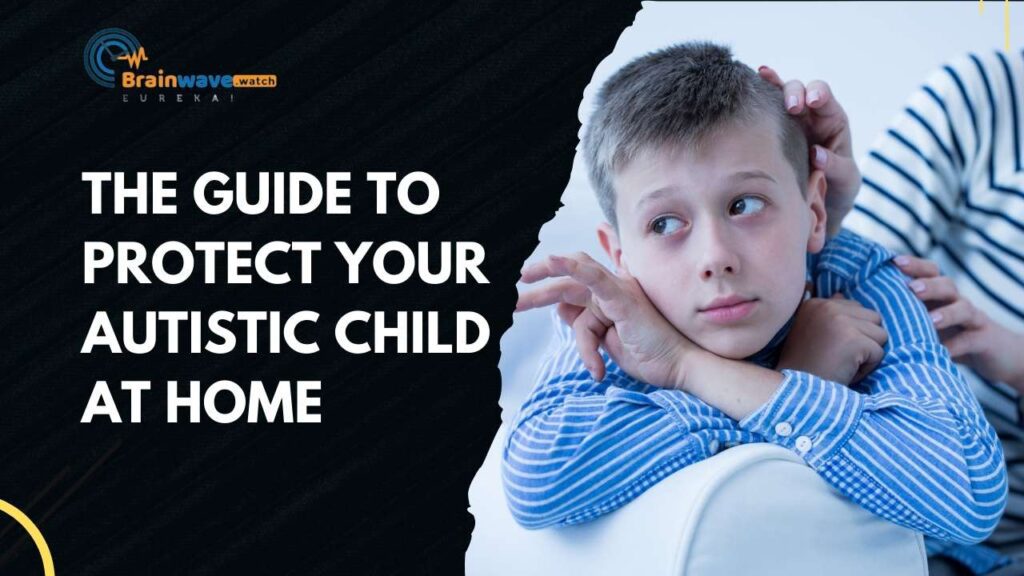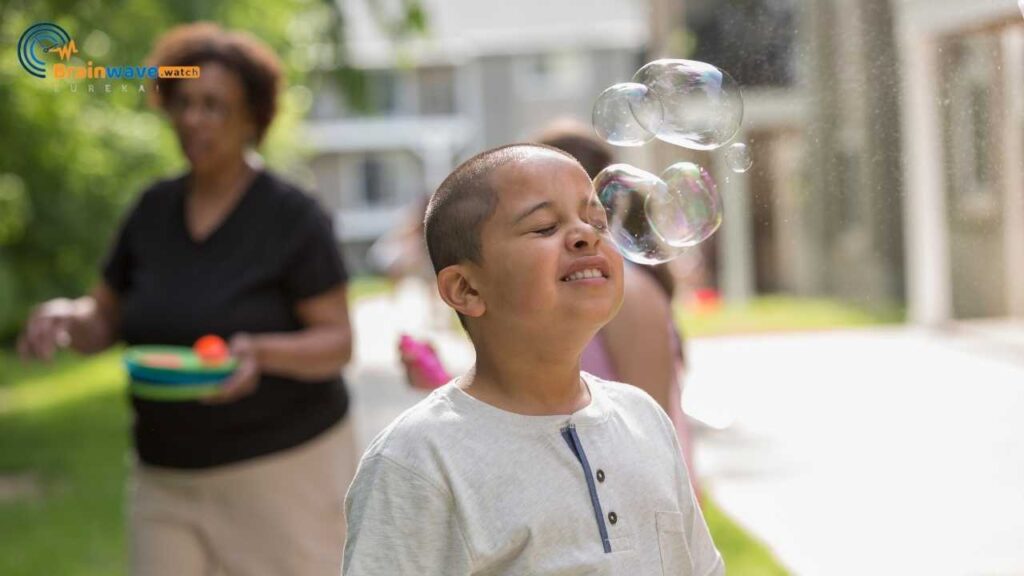Autism behavior problems are common in children with autism spectrum disorders. They can be difficult to deal with and affect how your child interacts with the world.
You need to be aware of triggers and situations that can cause problems, keep your child safe and secure, don’t force hugs or kisses, remember what your child can do, give affection when your child wants it and get help from parents with similar issues.
Be aware of triggers and situations that can cause problems
It’s important to be aware of the triggers that could lead your child to act out. If you see a problem, avoid it or minimize it as much as possible.
Identify the triggers: what are they? What happens when this happens? How do you know if your child is overstimulated and needs help?
Avoid triggering situations where possible: what are they, where do I see them, who am I around when these things happen (partners/friends), how can I avoid these situations in the future (do not attend parties with lots of loud music).
Keep your child safe and secure
As a parent, you’re going to want to keep your child safe and secure. That means making sure he or she is never alone in the house, especially when other people are around.
It also means that if you’re going somewhere public with your child, make sure he or she knows how to behave there (for example: “Stay near me,” or “Don’t touch strangers”).
It’s important for children with autism spectrum disorder (ASD) not only because they may be more likely than others at risk of being harmed by predators but also because they could potentially harm themselves during an episode of anxiety.
For example, imagine what would happen if someone were yelling at your kid while he was trying hard not to cry into his hands—it would probably only make things worse!
Don’t force hugs or kisses
Don’t force your child to hug or kiss you. Hugging and kissing are a big part of our culture, but they can be difficult for children with autism.
If your child doesn’t want to give you a hug or kiss, don’t push them into it—that may make things worse for both of you!
If your child does want to give you a hug or kiss but is uncomfortable doing so, try holding the other person’s hand instead (or vice versa).
This way, neither person has their hands full while they’re hugging each other; they’ll still be able to get close enough together that their bodies touch but not too close where someone gets hurt!
Remember what your child can do
It’s important to remember that your child may have some limitations, but he or she also has a lot of strengths. He or she may be able to do things in a very different way than you are used to, so it helps to keep this in mind when you’re working with him or her on behavior issues. Your child’s strengths include:
- His/Her Interests – Your autistic child will often have an interest in something that is different from what you would expect from an autistic individual (for example, they might be fascinated by numbers). If there is something specific about these interests that makes them stand out as unique and interesting, then take advantage of them!
- His/her Favorite Places – Many autistic individuals enjoy spending time at home because they feel safe there on their own terms; others prefer going outdoors because they like being around other people who aren’t family members (or even strangers!). It’s important not only for safety reasons but because otherwise too much time spent indoors can become boring over time if no changes occur around where one lives every day–especially if this happens repeatedly over many years without any new experiences happening during those times spent indoors alone together.”
Give affection when your child wants it
As a parent, you may be tempted to give your child affection when they want it. Don’t do it! If a child wants affection and you give them some, they could end up feeling like they have to ask for more later on.
This can lead to problems in the future: if your child wants affection but doesn’t get any from you because of their behavior problems, then he or she might feel rejected by the world and turn against himself (or herself).
Instead of giving hugs and kisses out of obligation or frustration with their behavior problems—which would only make things worse for everyone involved—you should wait until your child asks for them honestly and without prompting from anyone else first before responding positively.
If possible, try not to give any type of physical contact at all until both parties have reached an agreement about how often this will happen between each other; otherwise, things could get messy fast!
Get help from parents with similar issues
You may feel like you’re the only one struggling with your child’s behavior problems, but it’s important to remember that other parents have been there too.
Talk with other parents of autistic children and see if they can help you understand what is happening in your house.
Ask for advice from teachers, therapists, or other professionals who have experience working with kids with autism. Research books on autism and try using the internet as a source of information about what causes problems for kids who have this condition.
If you do not feel comfortable talking directly with someone in person then send an email instead asking them questions so they can give advice without feeling pressured into giving up their time right away!
Your doctor should be able to give some insight into possible solutions based upon their knowledge of medicine so ask them directly if they know anything about these issues instead of searching online first which could lead down an unnecessary rabbit hole of misinformation (and even harmful myths).
Build up self-esteem
Self-esteem is the belief that you are worthwhile and deserving of respect. It’s a core component of your identity, and it’s also an important part of how you relate to others.
If someone has low self-esteem, they tend to be shyer or withdrawn than other people who have high levels of this trait.
Autistic children often lack the ability to recognize their own feelings or value themselves because they don’t understand what makes them unique from other people — so it can take time for them to develop a healthy sense of self-worth (or lack thereof).
This can mean that autistic kids may show signs at different stages in their development: some may be very self-centered while others seem more introverted or socially isolated; some might struggle with making eye contact while others appear unconcerned by peers’ reactions toward them; still, others could be clingy but unaware that they’re acting like babies when everyone else around them is having fun!
Try to understand the feelings behind the behavior
You can’t change behavior unless you first understand why it’s happening. The more you understand the feelings behind a child’s autism, the better equipped you will be to address them.
- Understand the reasons behind their actions: If they’re upset because they don’t feel understood or validated by others, then trying to explain how things are going will likely result in more bad feelings than good ones. Instead of explaining, try listening and responding thoughtfully when possible (e.g., “It sounds like something that was upsetting for me too,” or “I’m sorry this happened”). If a child is feeling overwhelmed by sensory stimuli (like loud noises), try taking some time away from him so he has an opportunity for quiet contemplation before returning—you may even want to consider getting him into therapy at this point!
Take care of your own needs first
You can’t help your child if you are tired, frustrated, angry, or worried about the future.
You have to take care of yourself first. Take a break from work and relax for a few hours every day before getting back into your routine. If this is not possible then make sure that someone else does some of the childcare so that you can have time for yourself too!
How to deal with autism behavior problems
It’s important to be aware of what can trigger your child’s behavior. For example, a child with autism may have a hard time understanding why he or she was told not to do something—so it’s best not to tell them directly.
If you’re trying to teach your child about rules or limits, try using visual aids like pictures or diagrams rather than words. You could also try breaking the rule down into smaller chunks (for example: “Don’t touch that!” becomes “Don’t touch that ball”).
You can also help keep your child safe by making sure he or she is never left alone in public places such as restaurants and stores. If this means putting down toys before leaving home, so be it!
Conclusion
Now you know the best ways to deal with autism behavior problems in your child! We hope this article has given you some insight into autism, as well as how it affects kids and adults. If you’re looking for more information about what it means to have an autistic child or how you can help them navigate their world, then check out our blog post on Autism Facts & Statistics.







